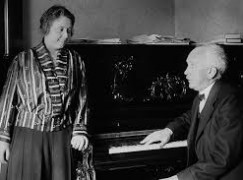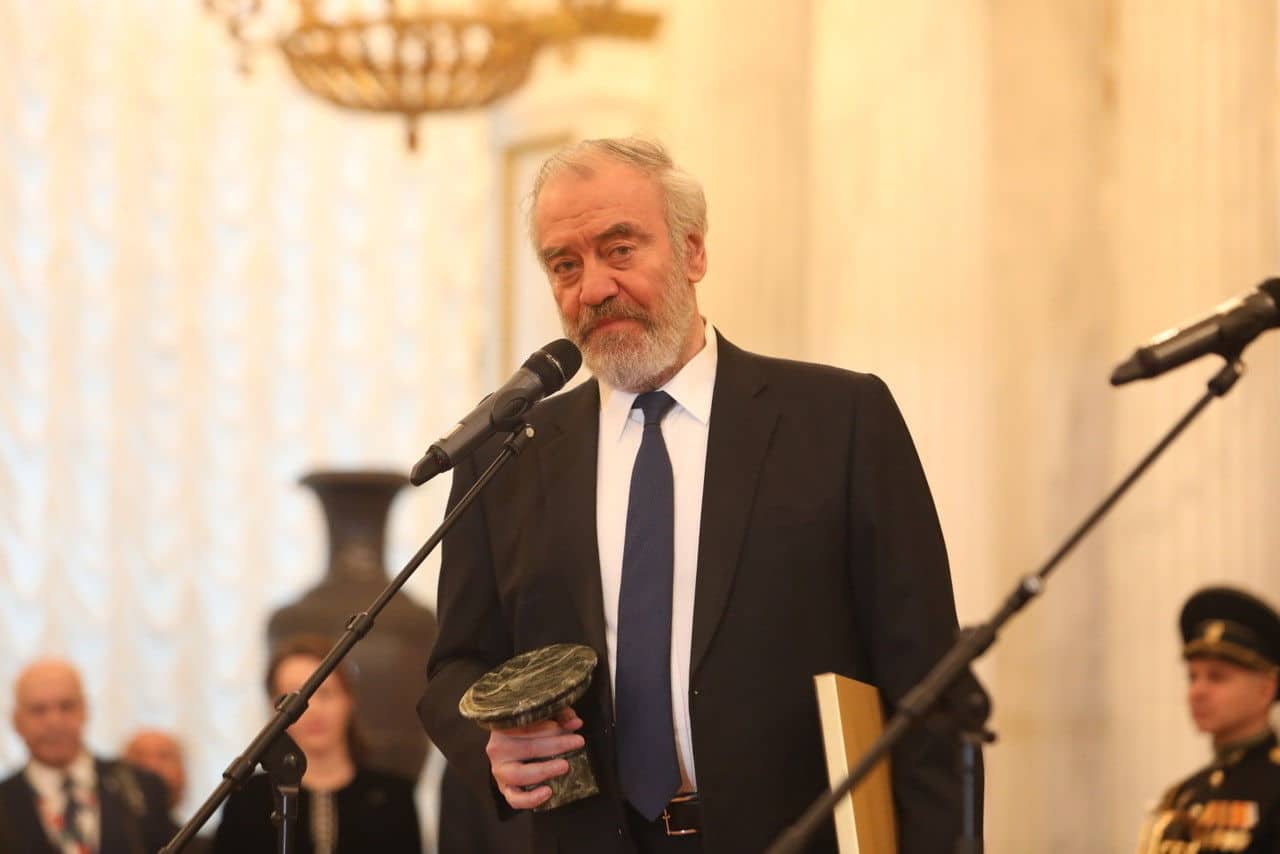From today, Richard Strauss is free
mainThe composer died 70 years ago on 8 September 1949.
That means his works fall out of copyright from the end of 2019.
Hardest hit will be Boosey & Hawkes, which has lived easy on the earnings from Der Rosenkavalier.







Who is the lady next to him?
Pauline, his wife is next to him.
https://de.wikipedia.org/wiki/Datei:Elisabeth_Schumann_%26_Richard_Strauss.jpg
its soprano Elisabeth Schumann, a favorite of Strauss
Pauline
Looks like Elisabeth Schumann
She looks like soprano Elisabeth Schumann.
I think it’s Elisabeth Schumann.
The great soprano Elisabeth Schumann.
Elisabeth Schumann.
Lotte Lehmann?
The soprano Elisabeth Schumann. A wonderful singer of Mozart, Schubert, Schumann, Strauss etc
Isn’t it his wife, Pauline?
Elisabeth Schumann
Ursuleac, no ?
That’s no lady, that’s his wife.
Kathleen Howard?
https://en.m.wikipedia.org/wiki/Kathleen_Howard#/media/File%3AKathleen_Howard.jpg
Eleanor Roosevelt?
Your headline contradicts your copy. The copy is right: he’s free from 1 January 2020.
Does this particular video partially contradict this? Hermann Hesse died in 1962…
Exactly. In reality, so-called “life+70” provides for a posthumous period between 70 years (if a rightsholder died at 23:59:60 on 31st December) and 71 years (if a rightsholder died at 00:00:00 on 1st January). Copyright persists until the end of the *calendar year* in which the 70th anniversary of the (last surviving) rightsholder’s death occurs. As a result, the exact day of death is irrelevant; only the year matters.
Still 4 months to go…
It’s usually stated as ‘life + 70 years’, which would mean today, but IMSLP have Strauss’s works in public domain from 2020. I guess they should know. This is just for Europe, as he’s been in the public domain in Canada for about 20 years, and I believe he will remain in public domain in the USA.
Am I right in thinking that works in which he collaborated may still remain in copyright for longer? Capriccio’s libretto, for example, was co-written by Clemens Krauss, who died five years after Strauss.
It also means that his music will be free for ballets and dance pieces – until now, the Strauss estate refused to allow choreographers to use anything else but his ballet music for dance, which means only four works: Josephs Legende, Schlagobers, Verklungene Feste and Tanzsuite. We’re going to see a lot a Strauss ballets from next year on.
But hasn’t Vier letzte Lieder been used in ballet for years?
A ballet to any of the tone poems would be incredible.
He should have taken some copyright lessons from Stravinsky so that his estate had a longer life span for the intellectual property.
Strauss made a good end with the “Four Last Songs”, three by Joseph von Eichendorff and one by Hermann Hesse. They first had a different order, but now usually end with “Abendrot”.
The sun sets on the first note to a timpani stroke and brass blaze. The soprano sings of two larks, then “We two together, hand in hand”, tired of wandering, feel a chill.. She asks “Is this perhaps Death?” as the horn quotes from “Death and Transfiguration” long ago, the tonality swims, and the orchestra locks in on the most beautiful perfect cadence of the twentieth century as flutes recall the two larks fluttering above the vanisheded sun.
Do others notice the seven-note quotation from “Porgi amor” near the beginning? It once cost me a night’s sleep.
Flagstad sang and Furtwaengler conducted the premiere. The title is said to have been the publisher’s idea, but a good one. “These are my four last songs, the last Lieder there will ever be.” There was a “fifth last song,” “Malven”, unconnected, unorchestrated, and at first unpublished, whose manuscript Strauss gave Maria Jeritza, among whose papers it was later found.
Karl Boehm andd the VPO caught the stroke of sundown perfectly forLisa della Casa. Schwarzkopf gives us the words, with Szell, Otto Ackermann, and Karajan.
No, dude, it’s three by Hesse and Eichendorff is only the last one.
Clarrieu, believe it or not I just saw your post with its gentle correction. I woke in the middle of the night of the 9th/10th realizing my mistake and stumbled in here to fix it. A lazy habit of trying to quote from memory will get me in trouble one day. It may already have. Thanks for your post.
All fine performances, but the one that never fails to reduce me to tears is Janowitz with Karajan.
Those must be EU rules.
In the US works published and copyrighted up through 1923 were already PD.
Works published and copyrighted 1924 through 1977 expire 95 years after the publication date (usually). His very late works will still be covered.
https://copyright.cornell.edu/publicdomain
From 1 Jan, and not in all territories….
I am interested in the economics of copyrights. How much does publisher charge each performer for a piece? What’s it based on? Popularity of piece, size of orchestra/ audience, ability to pay, multi-year contracts vs. one-offs?Do radio stations have to pay to play?
They have a FAQ for that https://www.boosey.com/faq/Opera-Dance-Musicals/101184
And who will be next? Prokofiev…? (1953)
Oh thank goodness for that.
That means AT LAST we can get the scores of METAMORPHOSEN without some torturous route to find them online!
It’s a different story in the US.
Works published on or after 1923 have 95 year terms.
So we have a while to go for the Four Last Songs
Good. B&H scores are ridiculously expensive. If only Britten were PD!
Nope, not Ursuleac, but Elisabeth Schumann…
Befreit!
https://m.youtube.com/watch?v=UXXjz4L8F7w
I suspect hardest hit will be Peters, which has lived off royalties for Also Sprach (thanks to Kubrick!).
Let the arrangements for Drum Corps begin!
Schoenberg Stravinsky met at a party in L.A. Composers talk about money, which Schoenberg needed more of. His USC pension was $30 a month. Stravinsky suggested bringing out revised editions of his more popular early works. Schoenberg said he’d think aabout it.
They met again a few weeks later. “What did you decide?”, Stravinsky asked him. “No, it’s impossible. Everything I’ve written is perfect just the wy it is,” Schoenberg said.
Thank any and all gods for IMSLP, and a host country with genuinely SANE copyright laws!
Correction: Three of the “Four Last Songs” are to poems by Hermann Hesse 1877-1962. One, “Abendrot”, is by Joseph von Eichendorff 1788-1857.
Robert Groen, Janowitz and Karajan are in my pantheon also for their record of “Vier letzte Lieder”, one of his best of Richard Strauss, with “Metamorphosen”,”Tod und Verklaerung”, and The Dance.
I’ve also replied to Clarrieu but cannot answer his question about the video.